#neat-o
Explore tagged Tumblr posts
Note
Everytime you use "Neato" i remember the lois meme of "ig i'm not woke" cuz idk what Neato means.
:3
10 notes
·
View notes
Text

When it's been a long day and you've got to carry your boss home 💪😩
4 notes
·
View notes
Note
Ohmyg hihibemlohihibuvhi!uhubuhhii
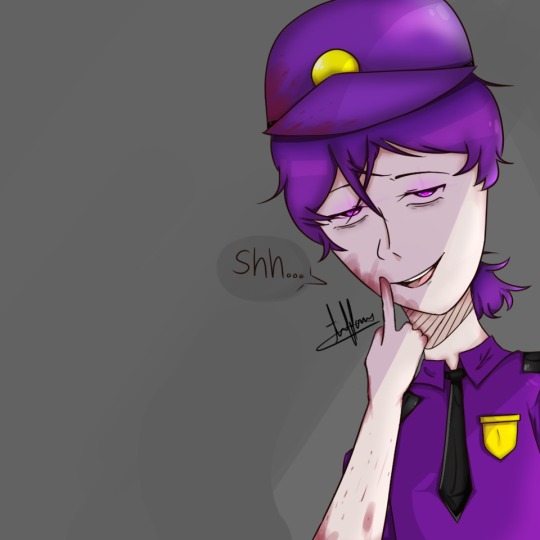



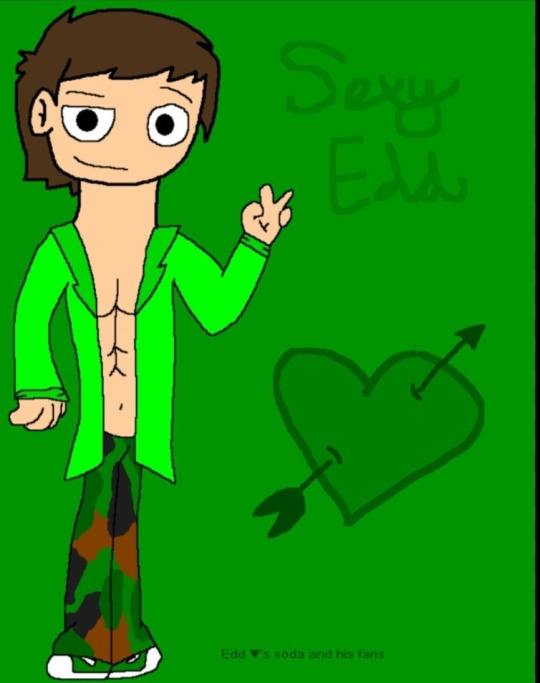
Pictures from my friend btw😇😋☹️🥲😗🤪☺️🤗😋🤗😸😟🙏🤸♂️💁♀️🙇♀️
This feels like a loaded gun being pressed into my forehead
48 notes
·
View notes
Text
Saw one of these on the street today

1932 Duesenberg roadster (but in glossy navy blue) and I had to stop and stare.
It was impressive.
I wonder if it was original or a "new old" version?
0 notes
Text
How Today’s Students Can Become Great Writers by Using Thomas Jefferson’s Methods
https://i0.wp.com/theattainer.com/wp-content/uploads/2024/01/thomasjeffersondeclaration.webp?fit=700%2C464&ssl=1
https://theattainer.com/how-todays-students-can-become-great-writers-by-using-thomas-jeffersons-methods/
How Today’s Students Can Become Great Writers by Using Thomas Jefferson’s Methods
During my high school years, a number of my friends were homeschooled kids who belonged to a particular accrediting organization. This organization required each student to write an annual research paper, the length of which corresponded to their grade (i.e. a 10th grade student was required to turn in 10 pages).
Over the years, I heard many groans about these infamous papers, which made me quite glad that my school did not have the same expectations. In retrospect, of course, I see that my friends who did the torturous assignment likely had a jump on me in terms of writing experience.
As it turns out, those friends appear to have had the jump on not only me, but much of the American high school population. According to Jay Matthews in The Washington Post, “almost no U.S. high school students are required to do long research papers.” Other writing is also minimal, largely consisting of only a few paragraphs here and there. With numbers like those, it’s no wonder that only one in four seniors leave high school as proficient writers.
But Matthews has a theory on how to change this problem. He suggests:
“‘Require students to take at least one semester of reading and writing instead of their regular English class. A paper is due each Monday. In class, students read whatever they like or work on next week’s essay while the teacher calls them up in turn and edits their papers as they watch.’
Each student would get about 10 minutes of live editing a week, much more than the zero minutes usually allotted. A few teachers told me they were doing something like that, but I realize it is too radical a reform for most places.”
In brief, Matthews is encouraging a focus on the basics. Read good books. Devote lots of time to writing. Be mentored by people who know their stuff.
Indeed, this advice is similar to that given by Thomas Jefferson for the education of his grandson, Francis, in 1821. According to Jefferson, literature and rhetoric – the art of persuasion through writing or speaking – were two subjects in which Francis could educate himself. Jefferson noted, however, that good writing is particularly advanced when guided by “the judicious criticisms of a qualified judge of style and composition.”
Jefferson himself seems to have had the benefit of this type of mentor while in his late teens. As he notes in his autobiography, he became a close friend of Dr. William Small of Scotland during his time at the College of William and Mary. Although Dr. Small was a mathematics professor, he appears to have been well-rounded in various disciplines. Two of these areas were literature and rhetoric. Apparently, Dr. Small was such an expert in these areas that he was the first to give regular lectures on both at William and Mary.
So, did Dr. Small’s expertise in these subjects rub off on Jefferson?
It seems likely that it did, for it was these very areas which catapulted him to a position as drafter of the Declaration of Independence. Recounting the occasion, John Adams wrote:
“Mr Jefferson came into Congress in June 1775. and brought with him a reputation for literature, science, and a happy talent at composition. Writings of his were handed about remarkable for the peculiar felicity of expression.”
When Jefferson protested being made the head of the Declaration committee, Adams gave him three reasons he should take the lead. The third? “You can write ten times better than I can.”
One has to wonder if Jefferson would have landed such an important job if he had not spent extensive time reading and been under the mentorship of someone skilled in literature and rhetoric.
Would today’s students soar to greater heights if schools took the advice of Jay Matthews, devoted more time to reading and writing, and were mentored by teachers who did the same? Would such a practice not only turn out better writers and communicators, but better thinkers?
What do you think?
0 notes
Text
edit (10/23/2024) now that the poll is over: Original version, with 10 questions, from April 2023 here
And, given that the original is from April 2023, that means I can very easily say:
No, this was not an ISAT reference!
Just because I use parentheses and 2nd person pov and love the same concepts of what a time loop can do to a person doesn't mean it's ISAT
(Yes, I like ISAT, the original poll is why I was recommended the game! But if you look at the original, you can see all the origins of the options to choose from, including what spurred me on with the moss option from the replies)
If I were going to make something for ISAT, I would never be so vague, you can simply look at my ao3 for proof of that
#egg speaks#writing#polls#my writing#egg writes#my polls#poetry#time loops#listen I want to run this again#time loop poll#<- check that tag on my blog for the original 10 option version lmao#unreality#you know I didn't think I'd get fed up with people making isat jokes about this#I thought it'd be like oh hey neat same hat#we both like the same game#but people keep going “oh this is JUST an ISAT reference”#as if it's not a genuine work of creativity I did myself. it feels a bit devaluing#“op you played isat” yes but that came after the original!!!!!#I KNOW it's not meant like that but I want people to engage in my work as its own thing. you can make jokes about similar media!!!#but this is it's own thing!!!!#I want people to like it for what it is. I want people to enjoy it outside of other media. I want it to stand on its own#I'm flattered someone said it was good enough that they think it could be narration from the game and read just as well!!!!#but like. idk. all the other medias popping up (pmmm. orv. higurashi. etc) aren't people calling it a /reference/#if I wanted it to be an ISAT reference I would have tagged it originally. I would have targeted it toward ISAT fans more intentionally.#I love fanworks but this was an ode to time loops alone. I wanted people to think. to have to CHOOSE. I wanted PARTICIPATION#time loops as a narrative and as horror and as a group activity via polls on tumblr. also s/o to the person who said 40 hr work week so tru
2K notes
·
View notes
Text
Neat-o!










'The Norber Erratics' Ancient Glacial Landscape Feature, nr. Clapham, Yorkshire Dales.
668 notes
·
View notes
Text
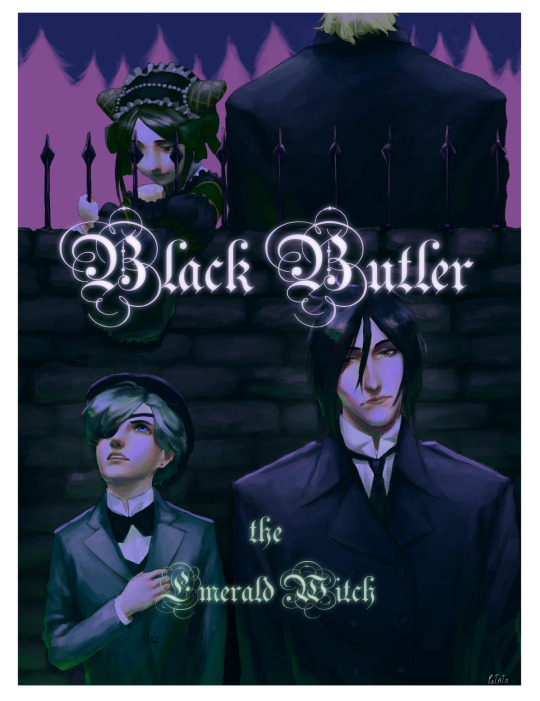
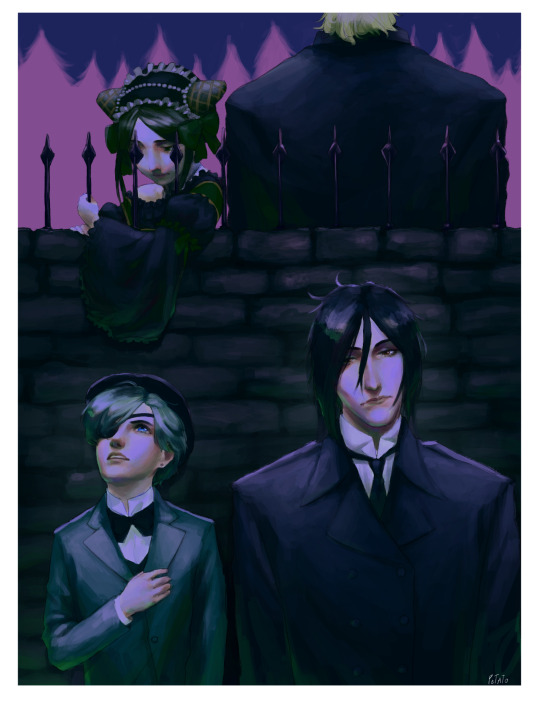
TRIED TO FINISH THIS BEFORE I GOT TOO MANY SPOILERS AND COULD WATCH IT I AM VERY EXCITED JUST VERY LATE
#hiiiii I hope everyone's been awesome and I've been resisting tumblr scrolling cause I hate spoilers but im got a wiff of great joy#and im super excited can this be the best season ever idk idk but#would be neat#in terms of poster design I may not have had my most imaginitive moment but I haven’t drawn digitally for myself for some months so#im super happy regardless#this always comes from a very specific spite I have towards the posters announcing the anime ♡ hope y'all dont mind....#I could have watched it rn so that I'm not much later but my bday's tn so im patience will reward me i think :>#can't wait to ponder it#kuroshitsuji#black butler#kuroshitsuji fanart#fanart#sebastian michaelis#ciel phantomhive#digital art#o!ciel#sieglinde sullivan#wolfram gelzer#black butler anime#kuroshitsuji anime
562 notes
·
View notes
Text
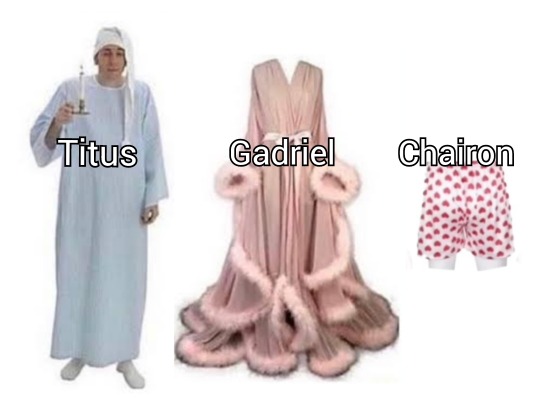
This is their dynamic in a nutshell to me
#wh40k#warhammer 40k#Demetrian Titus#Gadriel#Chairon#Titus x Gadriel x Chairon#idk what the ship name is#Damocles ig#yea that sounds right#anyway I think the three of them should smooch#that'd be neat-o
470 notes
·
View notes
Text

#jrwi suckening#emizel tucker#arthur bennett#FINALLY CLEANED IT UP and now its here and you can see it#i have like one more comic from this set that i need to finish up. and then itll be like. a page o 4 different suckening comics.#IM GETTIN THERE!!!#also i love the suckening ive been rewatchin the suckening and i loooove it so muchhhh#i forgot how fucken funny it is. and how cool and neat all these characters are...#i LOVEEE how awkward and weird arthur is despite being ice cold stone faced always#and how emizel is so like?? not Secretly sensitive but he has such a fierce and punk exterior#but he has SUCH a sweet interior.he CARESS HE CARES ABOUT HIS FRIENDSS.....#OKay okay ill. ramble more later. i got shit to doooo...#ill be workin on more suckening drawings n ill hopefully be able to post a Big Proper Colorful Doodlepage soon..#SO MANY OF THEM are soooooo close to being done....#okaye yeah yeah i gotta go now love you guys byyyeeeeee
215 notes
·
View notes
Text

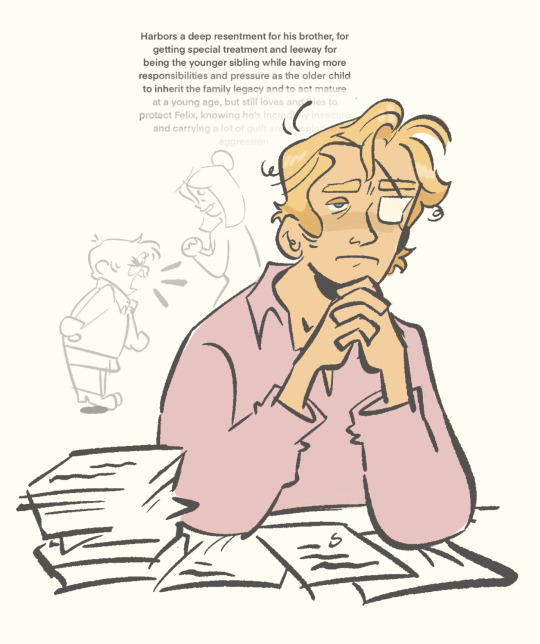
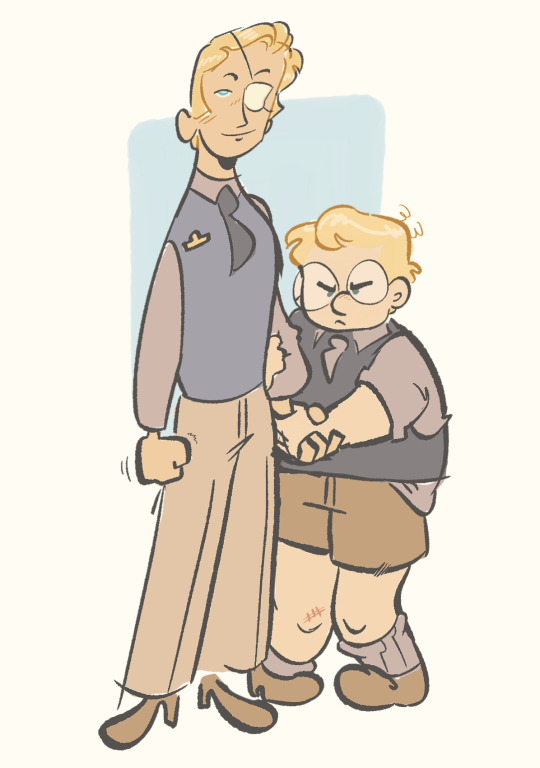
happy siblings
#bobs burgers#calvin fischoeder#felix fischoeder#I have t h o u g h t s#normally I’m not into like character pasts or family histories#but it plays into their dynamic really nicely and honestly makes me more interested#hot take but I don’t super wanna know more about their parents#more interested in just how they were as siblings as kids or just younger adults I think that’d be neat
514 notes
·
View notes
Text
Charlie Brown’s Christmas Message to America
https://i0.wp.com/theattainer.com/wp-content/uploads/2023/12/peanuts-christmas-690x450-1.jpg?fit=690%2C450&ssl=1
https://theattainer.com/charlie-browns-christmas-message-to-america/
Charlie Brown’s Christmas Message to America
Simple, timeless, and unpretentious, “A Charlie Brown Christmas Special” became a holiday tradition since its first airing on Dec. 9, 1965. Its beginnings were simple: a television producer approached cartoonist Charles Schulz with a general idea for an animated special featuring the Peanuts gang. Soon, the idea for a Christmas special, written by Schulz himself, became a mission for the man. Having seen the commercialization of the Christmas holidays, Schulz decided to focus his project on the true meaning of Christmas: Christ. When asked why, he responded, “If we don’t do it, who will?”
What was it that drove him to relentlessly invest his time and talents in this project? Perhaps he was compelled by the events he saw unfolding on the national stage.
In 1951, the New York State Board of Regents approved a nondenominational prayer that was to be recited at the beginning of each school day. It read, “Almighty God, we acknowledge our dependence upon Thee, and we beg Thy blessings upon us, our parents, our teachers and our Country.” The purpose of this 22-word prayer, according to the Regents, was partially to encourage the development of good, law-abiding citizens. Participation in the prayer was voluntary.
After almost a decade later, some parents said the prayer violated the Establishment Clause of the First Amendment by establishing a state-imposed religion. However, the New York State Supreme Court upheld the legality of the prayer. This ruling was appealed, and the appellate court said, “The state is not imposing a religious belief by using this prayer.” This ruling was also appealed, and the New York Court of Appeals agreed with the other two courts, stating, “There was a sufficient separation of church and state so that the First Amendment was not infringed.”
The case then was appealed to the U.S. Supreme Court, and in 1962, the Engel v. Vitale decision held that the lower three courts had been wrong: The prayer did indeed violate the Establishment Clause. The majority did not cite a single Supreme Court case in its opinion (except in a footnote) and overturned more than 200 years of public-school practice.
The dissent argued that the Establishment Clause of the First Amendment was designed to prohibit the establishment of a state-sponsored church, not to prohibit government involvement with religion. It said that the majority decision denied schoolchildren “the opportunity of sharing in the spiritual heritage of our Nation” and noted numerous instances of religion in the public square, such as “In God We Trust” on money or “God Save This Honorable Court” at the opening of Supreme Court sessions.
Engel v. Vitale was the beginning of a series of like-minded decisions. The next year, in Abingdon v. Schempp, the same court ruled that Bible readings and recitations of the Lord’s Prayer likewise violated the Establishment Clause.
It was in this precedent-upsetting milieu that Charles Schultz wrote the script for “A Charlie Brown Christmas.”
Linus, in the climax of the show, recites Luke 2:8-14. When he comes to the phrase “Fear not,” he drops his blanket. What a poignant symbol of reliance on God! Casting away his dependence, he shows that his true security is in faith, not in things.
In these secular times, “A Charlie Brown Christmas” might be the only way some children will learn the true meaning of Christmas:
“And there were in the same country shepherds abiding in the field, keeping watch over their flock by night. And, lo, the angel of the Lord came upon them, and the glory of the Lord shone round about them: and they were sore afraid. And the angel said unto them, ‘Fear not: for, behold, I bring you good tidings of great joy, which shall be to all people. For unto you is born this day in the city of David a Savior, which is Christ the Lord. And this shall be a sign unto you; Ye shall find the babe wrapped in swaddling clothes, lying in a manger.’ And suddenly there was with the angel a multitude of the heavenly host praising God, and saying, ‘Glory to God in the highest, and on earth peace, good will toward men.’”
Linus concludes his recitation by saying, “That’s what Christmas is all about, Charlie Brown.”
It sometimes takes time for cultural changes wrought by the Supreme Court to trickle down to actual practice. For example, a look at the beliefs of public-school administrators over time demonstrates how these Supreme Court rulings impacted the goals of public schools. The National Association of Secondary Schools Principals (NASSP), which polled middle and high school administrators in 1966, found that the development of “moral and spiritual values” was the second most important task of public schools, ranking only after the acquisition of basic skills (reading, writing, math). By 1992, it was at the bottom of the list.
Thus, in our recent past, school officials recognized the importance of instilling common values and a common heritage. So, apparently, did the entertainment industry. In 1966, “A Charlie Brown Christmas” received the Emmy for Outstanding Children’s Program.
Most Americans do not realize that Linus’ recitation of the nativity narrative takes place on a public-school stage and likewise do not recall a time when prayer, Christmas pageants, and Bible readings were allowed in public schools. It’s time we remind them.
“If we don’t do it, who will?”
—
A version of this article was published at Intellectual Takeout in December 2020.
Image credit: Flickr-22860, CC BY-SA 2.0
What do you think?
0 notes
Text
Denix: My English is better than my Portuguese.
Pac: Seriously?
Choke: You can't speak in English, Pac?
Pac: [Heavily accented] I can speak English a little bit if you want, but I don't- I'm not good at English anymore because I'm not used to English.
Choke: You are a liar! Because I saw your English.
Pac: My Eng– you saw my English with Fit? [Laughs]
Choke: Yes.
Pac: That's true, Choke has met Fit before.
Choke: I did! It was at a restaurant.
Pac: Really, it's very cool, very cool.

#Arkanis#Pactw#Choke#Denix#Pac#September 18 2024#Choke7#Thank you for the help on those last three lines Kia#My brain is so fried today fr#o(-(#Anyways. I think it's so funny that he specifically brings up Fit and not like. QSMP or anything#I didn't realize she met Fit :O She must've been at the Brazil party or at Twitchcon?#That's neat#Actually no that must've been Twitchcon
214 notes
·
View notes
Text
you know what I'm thinking about?? beck oliver. yeah the one from victorious first of all FUCK YOU dan schneider and I'm specifically thinking about this clip from the episode where they try to make a reality show about their high school 0:31
I really hate that beck is one of those characters like lucas friar and tristin dugray where we simply do not get more clarity on them as a person. one of the few times we get to see beck really open up and talk about WHY he's so passionate about acting and it's immediately cut off and overshadowed by how he looks. dare I say he has elle woods syndrome. "beck and jade are toxic" "beck should date cat" "beck and robbie fuck" yeah yeah you know what he REALLY NEEDS????? he needs someone that does not give a single fuck about how he looks. he needs someone who prioritizes HIM instead of his hair. yes he's pretty and he has nice hair but those are all sprinkles. he needs somone who cares about the rest of the cupcake, not just the decorations. I think the reason he thinks he likes angry girls who yell and fight with him all the time is because when he and jade fight she's yelling at him about anything other than his hair. he needs a break from constantly being objectified is my point. you know what would be great?? beck dating a screenwriter. someone who works on the scripts for the hollywood arts shows they put on. someone who hunts him down in the halls looking like they rolled out of a dumpster with sikowitz and reeks of coffee because they've been up for 36 hours to meet their deadline and finish their homework.
you are just that. you do other stuff at hollywood arts too, but there's really not a lot of script writers there, so you've found a way to pretty much corner the market and it looks FANTASTIC on your student transcript, plus you get extra credit for it, which is even better. you're wearing a hoodie that looks like you slept in it for two days (true if you had slept at all) and you're not aware of the two or three empty jet brew cups shoved into your hoodie pocket, plus the extra one you're carrying that you're almost done with.
"Beck!"
you manage to startle him a little which is surprising because he is totally unscareable. he doesn't think you've ever exchanged two words before now, he doesn't even know if he knows your name.
"I need to talk to you," you pant, a little delerious from caffeine and sleep depravation and excitement. "I finished the script for the next play-"
Beck didn't realize that a student was writing any of the shows they put on, he thought they were all lisenced or from local writers.
"It's a dystopian retelling of frankenstein with- with cyberpunk influences," you ramble, "and I need to know if you're okay playing the lead." you pant, still trying to catch your breath and not lose your train of thought.
"some pretty fucked up stuff happens and you'd have to quickly lose your morals and go from morally gray to kind of antagonistic pretty quickly..." you look up at him and hand him a script full of sticky flags. "I wanna make sure there's nothing that'll make you too uncomfortable... like I said it gets pretty fucked up, but I wrote it with you in mind for the doctor, so- just, let me know what you think."
before he can answer, you trudge into the janitor's closet and fall asleep on top of a pile of paper towels.
Beck takes the script home to look over, and he's genuinely surprised for a number of reasons. he expected to be typecast as the love interest yet again, but you want him as the antagonistic lead. it's a really complex role, and has absolutley nothing to do with how he looks. you even left a sticky note in there by accident, and he reads your scribbled handwriting. doc MUST be smwn who fully commits and dgaf if it makes them look bad or silly or unattractive. if they get self consious it ruins the char
underneith are two or three names scribbled out, then his, underlined several times. he is so genuinely shocked by this decision, and absolutely fascenated by your script. he's actually getting really excited to play a role that will challenge him for once.
the next day he meets you with the script tucked under one arm and a coffee in each hand. he hands one to you, and you thank him with a pleasantly surprised smile.
"You seem like you could use it."
"That's putting it mildly..." you mutter in agreement, and he bites back a chuckle when you remove the lid and down half the cup at once. You look at him anxiously after that, and your eyes flit between him and your script. "So... what did you think?"
"I... accept." relief floods through you. "I've already been thinking about my character and going over my lines. But why did you want me for Victor?"
You shrug a little.
"Well, you got the script like, 12 hours ago and you're already developing your portrayal of him, so that's a pretty good reason there," you chuckle, "and I... I hope this doesn't sound mean, but I don't think there are a lot of other people here who could pull off such a complex antagonistic main character."
you state, taking another sip of coffee.
"Everyone here is great, really-" you emphasize, hoping you don't sound like a dick. "I just feel like no one else could really bring the depth to him that you could. He's a horrible person, but I still want the audience to sympathize with him at times, and go wow he's a fucked up asshole at others without making it feel disjointed. I think you're really the only one who has the skills to pull that off."
honestly, if Beck had slightly less self control he would have started wailing and sobbing right then. Instead, he's determined to live up to your expectations and prove to you that your faith in him will pay off. You work pretty closley with production of the show, and with Beck. after closing night, you and Beck are still pretty close, to your pleasant surprise. his friends are a little curious why Beck suddenly is spending all his free time with one of those kids in their class who never talks or says anything, but he seems... happy. he did in fact fall first, and he definitely fell harder. he falls even more when months pass and he realizes you are still too adorably oblivious to realize how he feels.
#drabbles#beck oliver#beck oliver x reader#beck oliver drabbles#victorious#victorious x reader#victorious drabbles#LET BECK BE HAPPY#LET HIM BE SEEN#BECK NEEDS TO DATE SOMEONE ON THE ACE SPECTRUM TBH#beck with an ace and or aro s/o who when asked why they like him you're like “I just think he's neat! :)”#you have never once thrown yourself at him and he has never once wanted anyone so bad#your dynamic is literally “wow that sex was poggers lemme go back to explaining the fnaf lore”#and he's like yes#you are the first person to surprise him this much#beck unfortunately is bored and understimulated a lot#he's grateful for all the opportunities he's been given ofc#but deep down he yearns for more#not for materialistic “I wanna be famous” reasons#he just wants to feel something#and good GOD do you check that box several times over
242 notes
·
View notes
Note
Hey there pal if you like sad sad men screaming and horrific horrible things happening to people that don’t really deserve it THAT much. might I recommend Malevolent the podcast

#this is a joke but we'll see#i was not made for podcasts i zone out too much#wolfy tedtalks#neat o things
464 notes
·
View notes
Text
“I can’t believe Timothée Chalamet said that. It made me a hero with my kids and grandkids. I wanted to see the movie [A Complete Unknown] because I’m a Bob Dylan fan and it was outstanding. I can’t wait for this! Timothée call me, let's talk about it. We need to have him on the pod.”
-Ernie Johnson giving Timothée his stamp of approval to play him in a biopic
TikTok credit to nbaontnt
#timothee chalamet#ernie johnson#nba on tnt#I used to watch the show religiously#Crazy that they’re now talking about Timothée#he really did win everyone over this press run#shaquille o'neal#tnt#kenny smith#charles barkley#timothée chalamet#a complete unknown#ej’s neat o stat of the night
97 notes
·
View notes